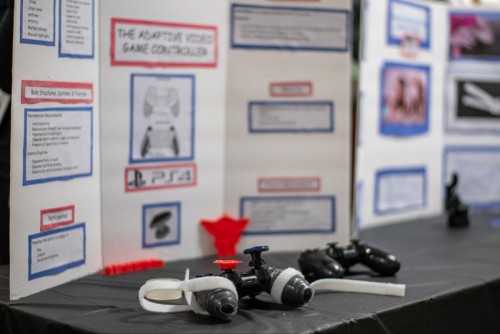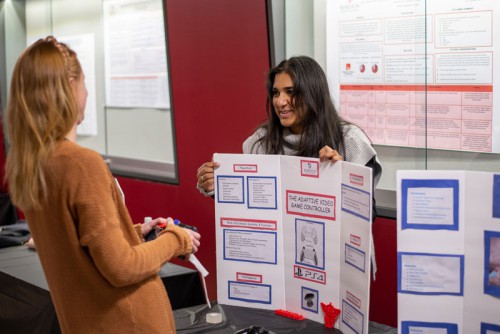News
Looking for the latest news?
Roberts Hosts Occupational Therapy Symposium
On November 23rd, the Occupational Therapy class of 2024 hosted a Demonstration Symposium. This symposium showcases the outstanding research and academic scholarship of the Roberts Wesleyan University Occupational Therapy Doctoral students.

Throughout the day, the students presented and demonstrated their assistive technology projects and answered questions. The students’ projects aimed to increase the ease of use for these everyday items for individuals with disabilities.
This symposium focused on the students’ work on creating assistive technology devices to increase, maintain or improve the functional capabilities of people with disabilities. The examples of assistance technology included modified doorknobs and dog leashes.

Jayne Knowlton, the program director, shares, “The goal of the Assistive Technology Symposium was to allow students to demonstrate the assistive technology project they developed during the Contextual Modifications for Occupational Performance course. The extended community was invited so that the students could experience diverse audience perspectives and gain experience educating individuals regarding assistive technology.”
She adds, “The students benefited by gaining experience demonstrating how their project worked, explaining why it was developed, and answering questions. By presenting, students gain skills in professional displays, education on devices, and functional use. Students had the opportunity to analyze feedback and assess their performance. The skills, knowledge, and perspectives gained are translatable to performance as a clinical occupational therapist.”
One such demonstration was a modified PS4 controller.

“I wanted to develop a device that could help children with disabilities engage in the same activities as their friends without feeling left out,” said Amanda Moerahoe’24 (Occupational Therapy).
“In this program, I learned that impaired fine motor control, grip strength, and sensory processing was commonly associated with Autism Spectrum Disorder (ASD). I realized that simple adjustments to a controller could do wonders for helping children with ASD play their favorite games.”

She added a silicone-based grip to the handles, an extended joystick with an enlarged thumb pad, and velcro straps to secure the control to the user.
“This design allows children to hold on to the controller more firmly and makes operating the joystick a lot more accessible! The symposium was a wonderful way for me to share my prototype design and receive constructive feedback from others.”



